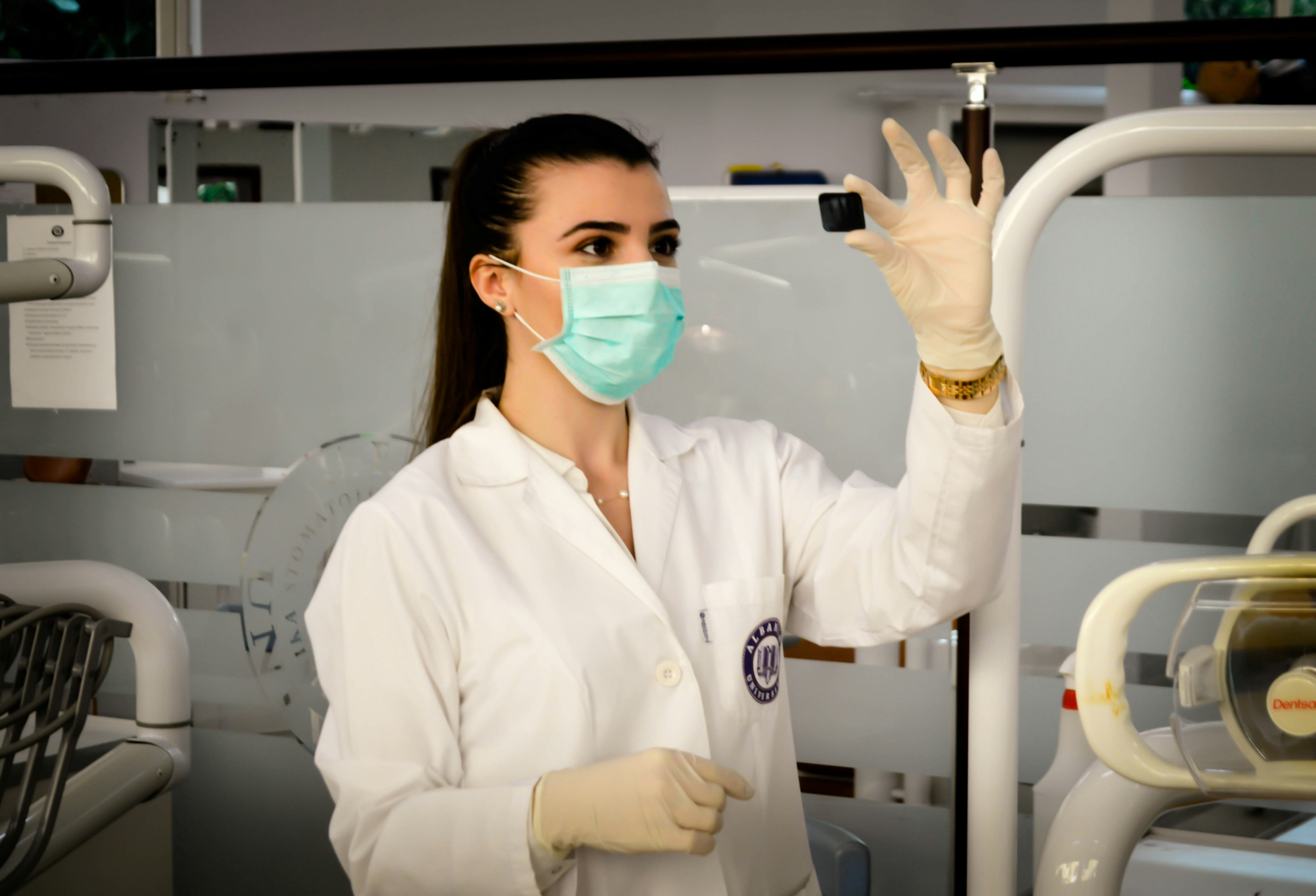

Admission to Medical Schools in the UK: Exams, Interviews, and Competition
Each year, UK universities receive around 23,000–24,000 applications for medical programs. At the same time, there are about 7,500 available places, meaning that three out of four applicants will not secure a spot.
For international students, the competition is especially tough: in many universities, the proportion of foreign applicants does not exceed 5–7% of total places, and requirements for tests (such as UCAT) and academic grades are often higher for them.
To successfully pass the selection process, international applicants should familiarize themselves in advance with the key requirements, which include:
— Entrance exams (UCAT, language tests)
— Academic grades
— University interviews
— Strong motivation and recommendation letters
In this article, we will review all these aspects step by step to help you prepare and increase your chances of admission.
Contents:
- Exams and academic requirements
- Medical school interviews: types of interviews
- How to prepare for the interview?
- Competition in medical schools: 2025 statistics
- How to improve your chances of admission?
Exams and Academic Requirements
To apply for medical programs in the UK, international applicants need to pass a specialized entrance exam — the UCAT, demonstrate a high level of academic preparation, and prove proficiency in English.
UCAT (University Clinical Aptitude Test)
The UCAT (formerly UKCAT) is a two-hour multiple-choice test used by most UK medical schools to select candidates for medicine and dentistry programs. Around 37,000 applicants take this exam annually, including international students.
The exam assesses:
— intellectual abilities,
— personal qualities,
— attitude towards the profession,
— model of professional behavior expected from future students.
Structure and duration
UCAT is a computer-based test lasting about 2 hours. It consists of four sections (each with a time limit):
- Verbal Reasoning
- Decision Making
- Quantitative Reasoning
- Situational Judgement
Previously, the exam also included an "Abstract Reasoning" section, but starting in 2025, it has been removed due to changes in the UCAT structure.
Registration and exam dates
The UCAT is held annually in summer and autumn — well before UCAS application deadlines. The UCAT schedule for 2025 (for entry in 2026) is approximately:
1. Scoring system
Each of the first three sections (Verbal Reasoning, Decision Making, Quantitative Reasoning) is scored on a scale from 300 to 900 points. The total score is the sum of these three sections, ranging from 900 to 2700.
The final section, Situational Judgement, is scored separately: you receive a band score from 1 to 4, where:
- 1 — highest score (answers almost fully align with the “professional behavior model”)
- 4 — lowest score (significant discrepancies from expected responses)
2. Academic Grades
UK medical schools have high academic requirements:
- A-levels — usually require grades A*AA or AAA (Chemistry and Biology are mandatory).
- International Baccalaureate (IB) — from 36 to 39 points, including Chemistry and Biology at Higher Level.
For students studying outside the British system, grades are converted according to official equivalency scales. In such cases, a prior academic credential evaluation may be required (e.g., through UK ENIC — United Kingdom European Network of Information Centres).
3. English Language Tests
International applicants must prove their English proficiency — both for university studies and for future work in the medical field.
The most common tests accepted by UK universities are:
- IELTS Academic — the minimum passing score is usually between 7.0 and 7.5, with no less than 7.0 in each component (reading, writing, listening, speaking).
- TOEFL iBT — scores ranging from 100 to 110, depending on the university.
- Cambridge C1 Advanced / C2 Proficiency, Duolingo English Test — also accepted but less commonly.
Important: Even if you have studied in English, having one of these test results may still be required — for example, when applying for a student visa.
What about BMAT?
The BMAT (Biomedical Admissions Test) was discontinued in 2023 by Cambridge Assessment. Starting from the 2024/2025 academic year, all universities that previously required BMAT (including Oxford, Cambridge, Imperial College London, and others) have fully switched to using the UCAT.
Medical School Interviews: Types of Interviews
Interviews at UK medical schools are of two main types: MMI (Multiple Mini Interviews) and traditional panel interviews.
MMI (Multiple Mini Interviews)
The MMI format consists of a series of short stations (usually 6 to 10), each lasting 5–10 minutes. At each station, the applicant is asked to complete a specific task — answer a question, analyze a situation, interact with a “patient,” or demonstrate communication skills.
MMI is designed to objectively assess a broad range of qualities essential for a future doctor: logical thinking, clear communication, empathy, and understanding of professional and ethical responsibilities.
Examples of tasks:
- Discussing a moral dilemma (e.g., whether euthanasia is acceptable)
- Explaining a medical procedure to a layperson
- Communicating with a “patient” in a simulated stressful scenario
MMI is used by most UK medical schools, including the University of Manchester, King’s College London, University of Edinburgh, and others.
Traditional (Panel) Interview
This format involves a conversation with a panel of two or three people — usually faculty members, doctors, and/or senior students. The interview lasts 20–40 minutes. It typically includes an in-depth discussion of your Personal Statement, academic interests, life experience, as well as your understanding of the medical profession and the UK healthcare system.
Unlike MMI, the panel interview is a more fluid and connected dialogue, where well-reasoned answers, maturity of judgment, and genuine interest in the profession are valued.
This format is used notably at Cambridge and Oxford.
How to Prepare for the Interview?
Good preparation for the interview is one of the key factors for successful admission. Regardless of the format (MMI or panel interview), the university panel will evaluate not only your knowledge but also your personal qualities: motivation, maturity, honesty, empathy, and stress resilience.
Here are some recommendations for effective preparation:
Tip #1. Learn the interview format of your chosen universities.
Before you start preparing, make sure to find out which interview format each university you are applying to uses.
- Cambridge and Oxford mainly conduct panel interviews.
- Most other universities use the MMI format.
You can find this information on the official university websites or on the UCAS site. This will help you create a tailored preparation plan.
Tip #2. Think through and practice typical questions.
For panel interviews, it makes sense to prepare answers for questions like:
- Why do you want to become a doctor?
- What qualities do you think are important for a doctor?
- Describe a situation where you had to deal with a difficulty or conflict.
- What medical issue do you consider the most important in today’s world?
Important: Don’t memorize answers word for word — it’s better to develop clear, sincere, and well-reasoned points so you can speak naturally.
For MMIs, preparation should be more “practical”:
- Ask a friend or teacher to organize mini-tasks for you in the MMI format (ethical dilemmas, communication exercises).
- Use a timer and assess yourself by time limits.
- Practice quick thinking and flexibility — in these interviews, the ability to adapt quickly is crucial.
Tip #3. Familiarize yourself with ethical principles and the UK healthcare system.
Interviewers want to see that you understand the basics of professional ethics and have an idea of how medicine works in the country where you plan to study and work. Therefore, it is recommended to:
- Study the principles outlined in the GMC Good Medical Practice (the official UK doctors’ code of conduct).
- Learn the basics of the NHS (National Health Service): its goals, structure, and current challenges (e.g., staff shortages, funding, digitalization).
It’s also helpful to follow medical news — this will help you feel more confident discussing current topics.
Tip #4. Practice aloud and get feedback.
Ask friends, teachers, or mentors to conduct mock interviews with you. It’s best if they can record you on video — this helps notice unnecessary gestures, voice insecurity, or inconsistencies in your answers.
Check out online communities like The Student Room or Reddit — they often hold peer practice sessions for future applicants.
Tip #5. Develop confidence and emotional resilience.
It’s important not only to know the right answers but also to be able to communicate them calmly and with dignity — even under pressure. This is especially relevant for the MMI format, where you need to move quickly from one task to another without breaks.
Practice these skills:
- Pausing before answering
- Active listening
- Maintaining eye contact
- Keeping a calm tone of voice
- Managing emotions (especially during difficult or provocative questions)
Competition in Medical Schools: 2025 Statistics
General statistics
Medical programs in the UK are among the most competitive and difficult to get into. In 2025, approximately 23,350 applications for medical faculties were submitted through the UCAS system. However, the number of available places is limited — around 7,600, of which about 7,100 are reserved for UK citizens.
Thus, no more than 500 places across the country are allocated for international applicants, making the competition especially tough. On average, only one in four applicants (including UK applicants) receives an offer, while among international applicants, fewer than one in twenty (i.e., just 5%) get an offer.
Examples of universities with a higher acceptance rate in 2025 (including UK applicants):
- University of Lincoln Medical School — about 32.6% (relatively high compared to national averages)
- Manchester Medical School — approximately 43.8%
- Newcastle University Medical School — 31.1%
- Queen’s University Belfast — 23.3%
- University of Sunderland School of Medicine — 21.9%
- Bristol Medical School — 21.7%
Universities with more selective admissions:
- Cambridge — about 18% overall acceptance, but only 3% for international applicants (in 2025, only 8 international students were admitted).
- Oxford — less than 3% acceptance rate for international applicants.
- University of Exeter — only 4.7% of international applicants received offers in the 2018/19 academic year.
- University of Edinburgh — around 8% of international applicants receive offers.
How to Increase Your Chances of Admission?
1. Choose universities strategically. Don’t limit yourself to only the most prestigious universities with very high competition. Add universities where the chances of getting an interview are higher — for example, Manchester, Lincoln, or Newcastle.
2. Exceed minimum requirements. Aim to show the strongest possible academic results — target A* grades in your core subjects and high scores on the UCAT exam. Any weaknesses in your academic profile may lead to rejection.
3. Strengthen your portfolio. Universities consider more than just grades. Be sure to include your medical experience: volunteering, internships, as well as so-called shadowing — observing a doctor in a clinical setting (where you don’t participate in treatment but attend consultations and procedures). Obtain strong letters of recommendation. Carefully craft your Personal Statement — it should be clear, structured, and convincing.
4. Prepare thoroughly for the interview. Practice in advance — especially medical ethics questions, patient communication scenarios, and basics of how the NHS operates. Participating in mock interviews will help you feel more confident and express your thoughts better.
5. Submit documents through UCAS strictly on time. Applications for medical courses are accepted only until October 15. Each applicant can submit a maximum of 4 applications to medical schools.
Need detailed guidance?
Experts at ED-EX.com will assist you at every stage of the application process — from choosing a country to preparing documents.
You can submit a request in any convenient way:
— directly in your personal account
— on the page of your chosen university
— or by emailing us at support@ed-ex.com
All About Education Abroad and Beyond


How do I apply for a Bachelor's degree through ED-EX.com?


